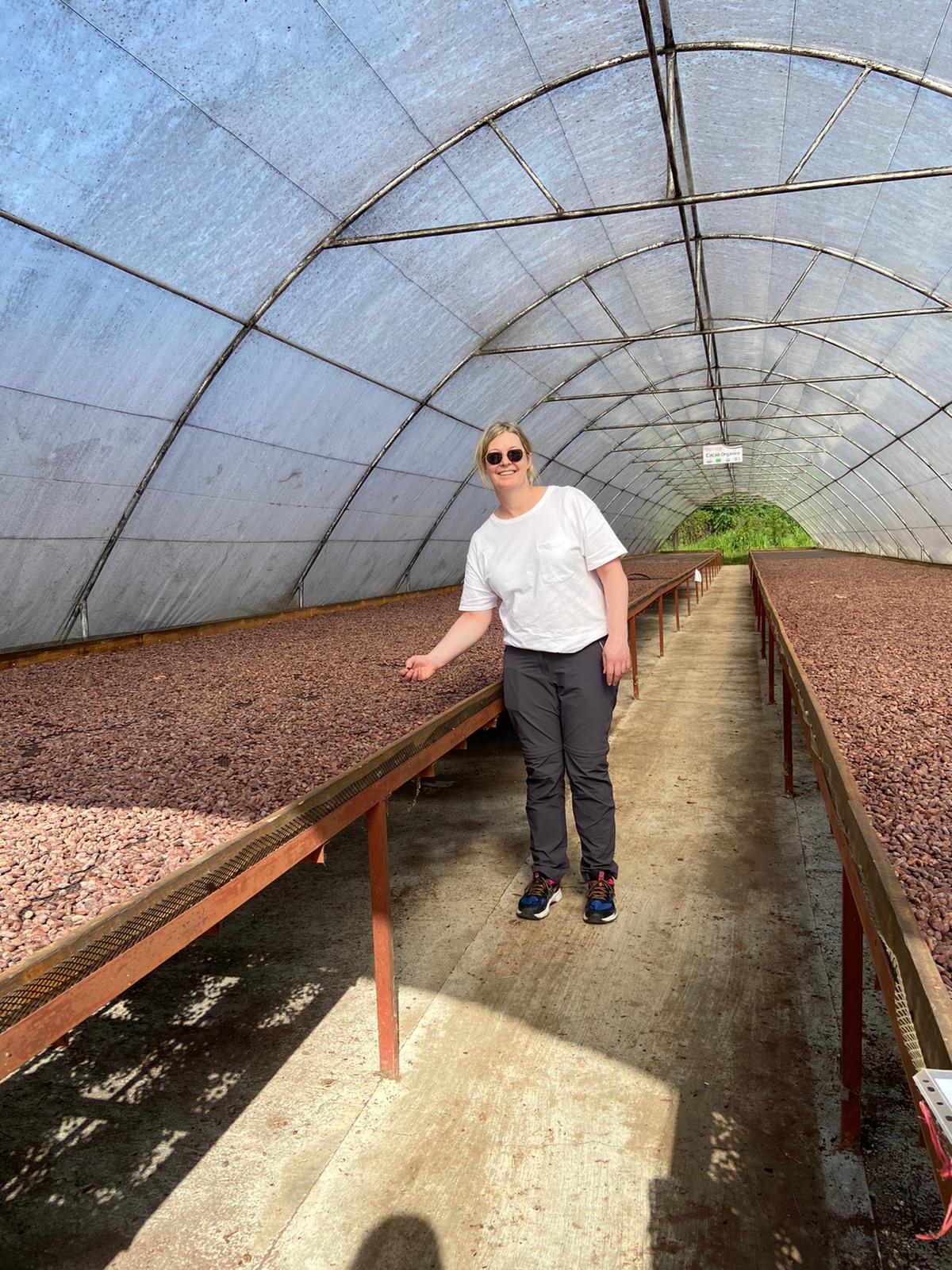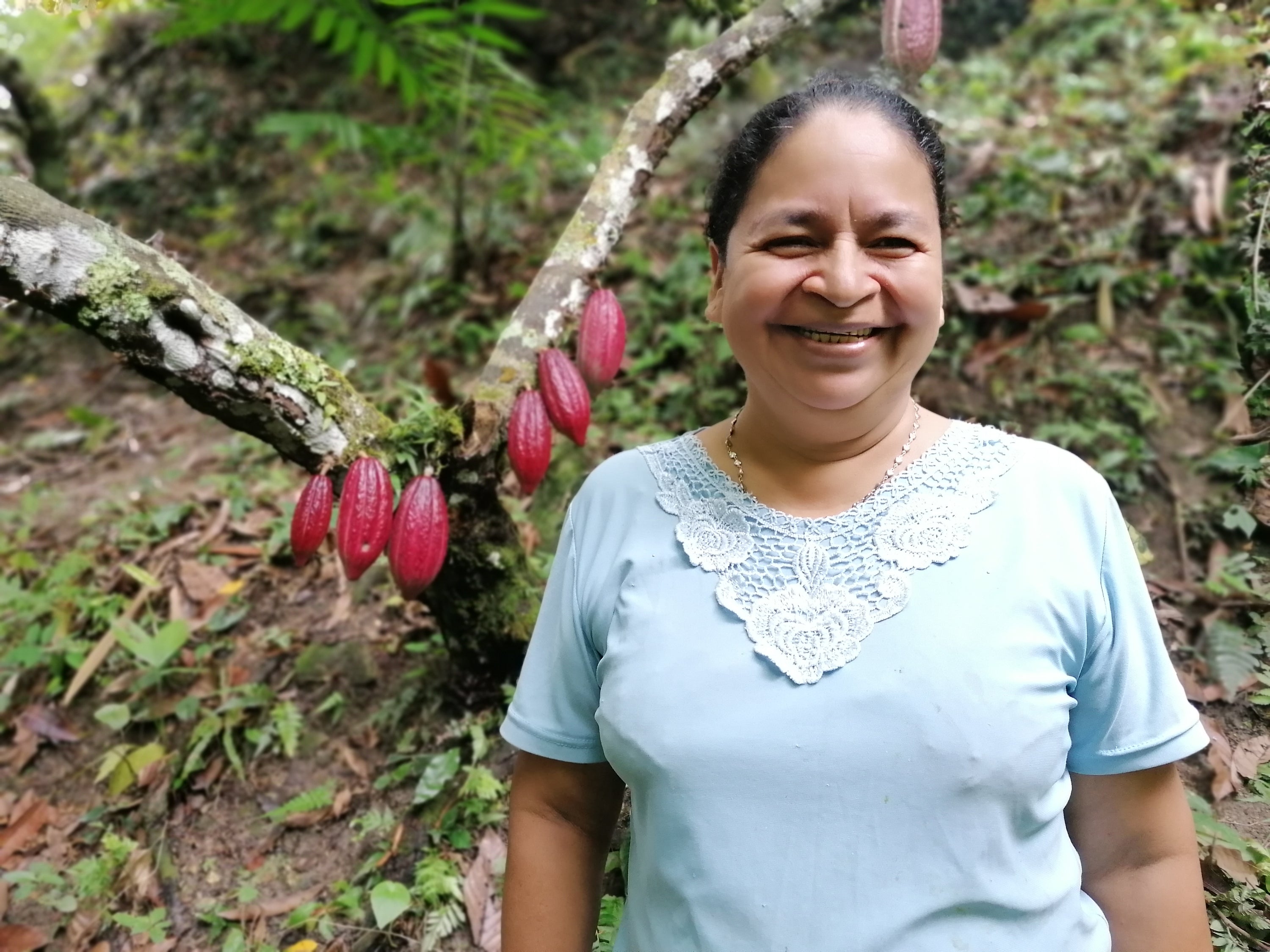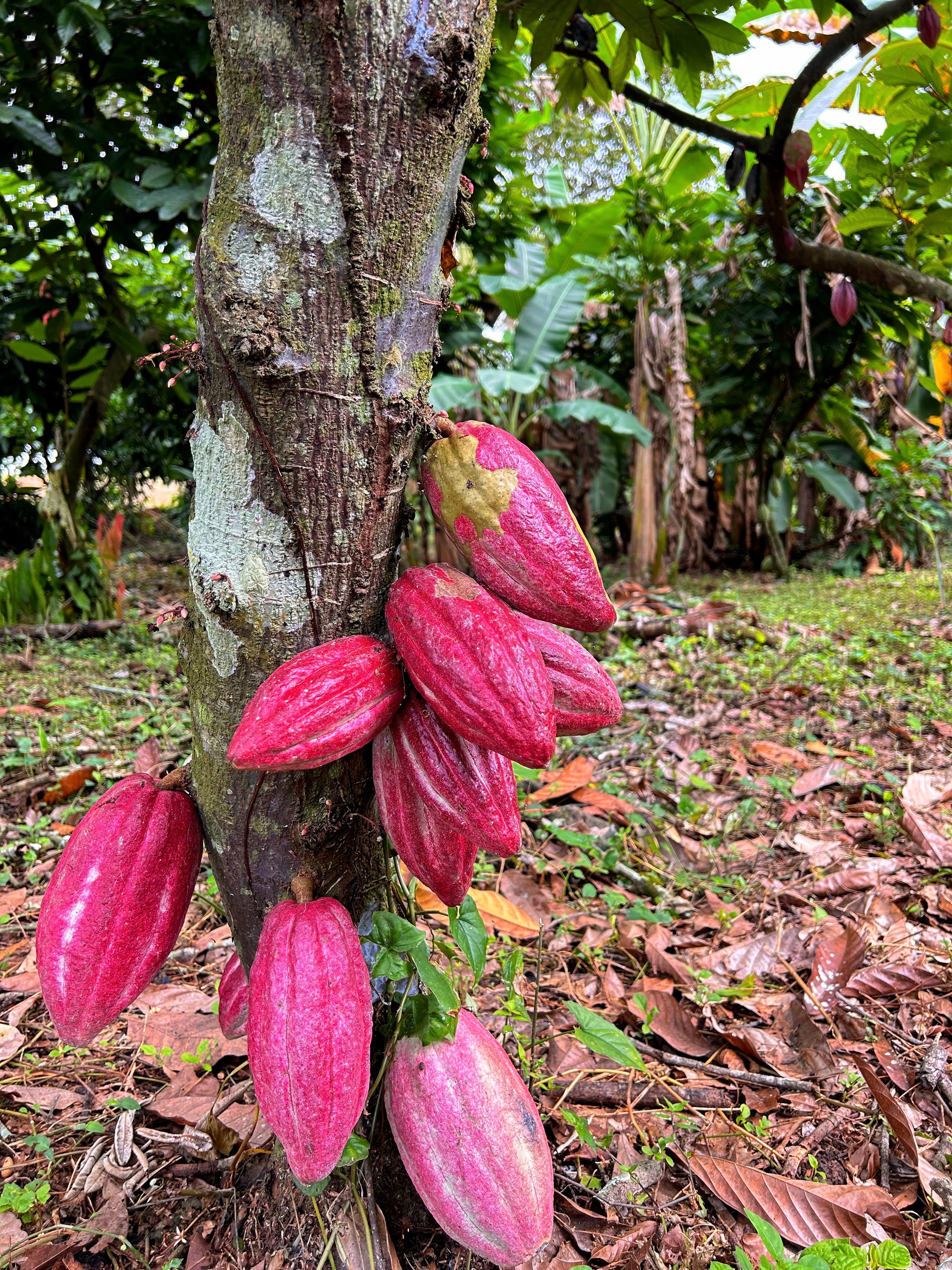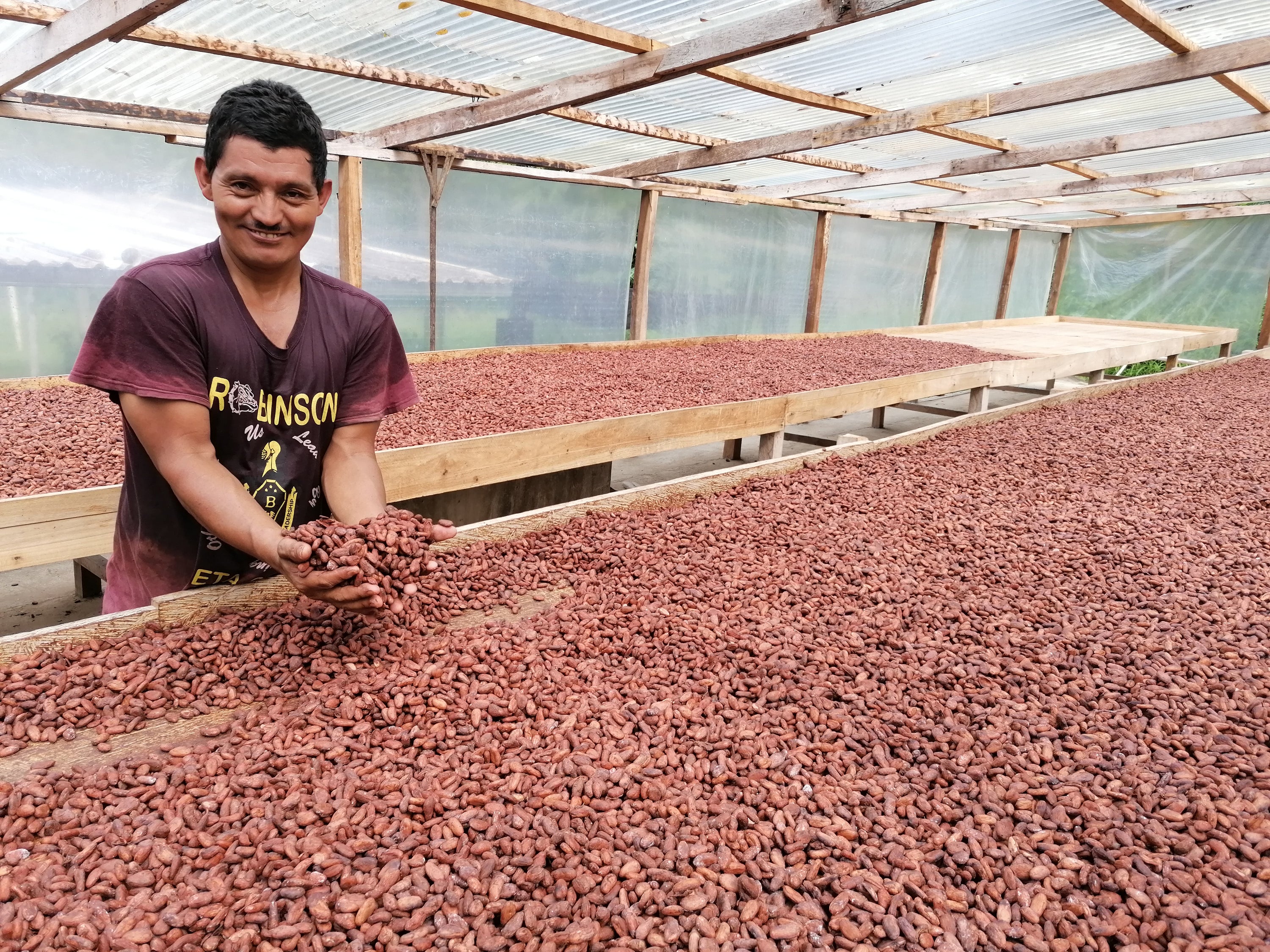
cacao
SINGLE ORIGIN, ORGANIC CACAO BEANS

food of the gods
Cacao or Kakaw as pronounced in the Mayan language was consumed by the Mesoamerican peoples as early as 5,300 years ago.
The Mexica people considered it the gift of Quetzalcoatl, the God of Wisdom, while the Maya had their own God, Ek Chuaj who was the patron of Cacao. Ek Chuaj was also the God of Merchants and cacao beans were used as a currency throughout the region.
The Aztec Empire collected a tribute of 980 cacaoxiquipilli “bean loads” per annum, and each of these special loads had exactly 8000 beans. 80-100 beans could buy you a new cloth mantle.
Cacao was a real money tree! Brought to Europe by the Dominicans, it is one flavour that has conquered the world.

the cacao tree
It takes 3 to 5 years for a cacao tree to begin producing its sacred, oblong fruit. With just one pollinator—the tiny midge—these humble insects play a crucial role in the cacao lifecycle.
Cacao trees thrive in rainforest climates, not only for their own needs but because midges prefer the humid, shaded conditions of the forest. In conventional plantations, pest issues can wipe out entire harvests, which is why many growers are turning to organic and regenerative methods.
We choose to source only organic-certified cacao from smallholder farms in the Dominican Republic, Nicaragua, and Honduras. These producers are part of social enterprises or cooperatives, and they prioritise soil health, biodiversity, and long-term sustainability in everything they do.

cacao beans
There are three main varieties of the cacao tree: Criollo, Forastero, and Trinitario. Our organic beans are a Criollo–Trinitario hybrid, marrying Criollo’s delicate floral aromatics and nuanced sweetness with Trinitario’s rich, resilient depth—yielding a luxuriously smooth cup with subtle complexity and a gentle finish.
Our cacao beans are fermented straight after harvesting to develop their flavour. Without this crucial step, the beans would taste bitter and flat—nothing like the rich, complex cacao that gives Nibbed its signature depth and smoothness.

![Pure Cacao Grated [200g]](http://nibbedcacao.com/cdn/shop/files/NC-193_c7a1fc90-4d56-40d6-8b7d-56fd036451e7.jpg?v=1745068591&width=65)
![Pure Cacao Grated [500g]](http://nibbedcacao.com/cdn/shop/files/NC-168_67dcf7e8-50c1-4823-b782-e438cc4b86ac.jpg?v=1745068523&width=65)

![Pure Cacao Block [300g]](http://nibbedcacao.com/cdn/shop/files/Nibbed_Cacao_Block_300g_064abb3e-c390-4666-ae85-52298d2516a3.png?v=1749477474&width=65)










![Pure Cacao Grated [200g]](http://nibbedcacao.com/cdn/shop/files/NC-193_c7a1fc90-4d56-40d6-8b7d-56fd036451e7.jpg?v=1745068591&width=2000)
![Pure Cacao Grated [200g]](http://nibbedcacao.com/cdn/shop/files/Nibbed_Pure_Cacao_-_Great_Taste_1.png?v=1753872308&width=2000)
![Pure Cacao Block [300g]](http://nibbedcacao.com/cdn/shop/files/Nibbed_Cacao_Block_300g_064abb3e-c390-4666-ae85-52298d2516a3.png?v=1749477474&width=2000)
![Pure Cacao Block [300g]](http://nibbedcacao.com/cdn/shop/files/NC-108_a65d8ad1-d017-4815-beb3-d3f822b8d5a6.jpg?v=1749472074&width=2000)
![Pure Cacao Grated [500g]](http://nibbedcacao.com/cdn/shop/files/NC-168_67dcf7e8-50c1-4823-b782-e438cc4b86ac.jpg?v=1745068523&width=2000)
